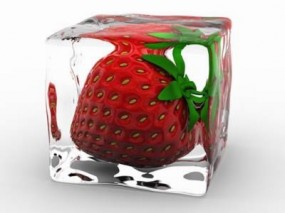- Fitness (19)
- News & Reviews (25)
- Nutrition (20)
- Science (10)
- Supplements (6)
- Technologies (8)
- The Arts (9)
Building Smarter Beings
July 17th, 2011
 By Riddhi Shah of the HuffingtonPost: Over the last decade, interest in the science of meditation has skyrocketed. We now know more than ever before about just how meditation affects our minds and bodies. Increased research has led to a plethora of fascinating discoveries: Take, for instance, the fact that meditation can prevent heart disease. Or that it reduces stress. Or that it can significantly lessen ADHD symptoms, and in many cases, beats medication.
By Riddhi Shah of the HuffingtonPost: Over the last decade, interest in the science of meditation has skyrocketed. We now know more than ever before about just how meditation affects our minds and bodies. Increased research has led to a plethora of fascinating discoveries: Take, for instance, the fact that meditation can prevent heart disease. Or that it reduces stress. Or that it can significantly lessen ADHD symptoms, and in many cases, beats medication.
Still, much is left to be discovered. We know more but we definitely don’t know everything. While we wait for science to catch up with ancient wisdom, check out this slideshow on the complex effects of the simple act of focused breathing [here are its salient points]:
- [S]ustained meditation leads to something called neuroplasticity, which is defined as the brain’s ability to change, structurally and functionally, on the basis of environmental input. For much of the last century, scientists believed that the brain essentially stopped changing after adulthood. But research by University of Wisconsin neuroscientist Richard Davidson has shown that experienced meditators exhibit high levels of gamma ray activity and display an ability — continuing after the meditation session has attended — to not get stuck on a particular stimulus. That is, they’re automatically able to control their thoughts and reactiveness.
Meditation For ADHD Teens & Adults
May 1st, 2011
 Mindfulness meditation significantly helped three-quarters of the participants in a study described here by Dr. David Rabiner: Because of the wide spread interest in new ADHD interventions — particularly non-pharmaceutical approaches — I try to cover credible research in this area when ever I come across it. I was thus pleased to learn about a very interesting study of mindfulness meditation as a treatment for adults and adolescents with ADHD that was published in the Journal of Attention Disorders.
Mindfulness meditation significantly helped three-quarters of the participants in a study described here by Dr. David Rabiner: Because of the wide spread interest in new ADHD interventions — particularly non-pharmaceutical approaches — I try to cover credible research in this area when ever I come across it. I was thus pleased to learn about a very interesting study of mindfulness meditation as a treatment for adults and adolescents with ADHD that was published in the Journal of Attention Disorders.
Although medication treatment is effective for many individuals with ADHD, including adolescents and adults, there remains an understandable need to explore and develop interventions that can complement or even substitute for medication. (…)
In recent years, mindfulness meditation has been used as a new approach for stress reduction and incorporated into the treatment for a variety of psychiatric disorders, including depression, anxiety, and substance abuse. Of special relevance to the treatment of ADHD are findings that meditation has the potential to regulate brain functioning and attention. For example, research has demonstrated that mindfulness meditation can modify attentional networks, modulate EEG patterns, alter dopamine levels, and change neural activity.
Filed under News & Reviews | Comments Off on Meditation For ADHD Teens & AdultsADD Kids Helped by Food Sensitivity Diet
March 14th, 2011
 From NPR — All Things Considered: Hyperactivity. Fidgeting. Inattention. Impulsivity. If your child has one or more of these qualities on a regular basis, you may be told that he or she has attention deficit hyperactivity disorder. If so, they’d be among about 10 percent of children in the United States.
From NPR — All Things Considered: Hyperactivity. Fidgeting. Inattention. Impulsivity. If your child has one or more of these qualities on a regular basis, you may be told that he or she has attention deficit hyperactivity disorder. If so, they’d be among about 10 percent of children in the United States.
Kids with ADHD and ADD can be restless and difficult to handle. Many of them are treated with drugs, but a new study says food may be the key. Published in The Lancet journal, the study suggests that with a restrictive diet, kids with ADHD could experience a significant reduction in symptoms.
The study’s lead author, Dr. Lidy Pelsser of the ADHD Research Centre in the Netherlands, writes in The Lancet that the disorder is triggered in many cases by external factors — and those can be treated through changes to one’s environment.
“ADHD, it’s just a couple of symptoms — it’s not a disease,” the Dutch researcher tells All Things Considered weekend host Guy Raz. The way we think about — and treat — these behaviors is wrong, Pelsser says. “There is a paradigm shift needed. If a child is diagnosed ADHD, we should say, ‘OK, we have got those symptoms, now let’s start looking for a cause.’ ”
Pelsser compares ADHD to eczema. “The skin is affected, but a lot of people get eczema because of a latex allergy or because they are eating a pineapple or strawberries.” According to Pelsser, 64 percent of children diagnosed with ADHD are actually experiencing a hypersensitivity to food.
Filed under Nutrition | Comments Off on ADD Kids Helped by Food Sensitivity Diet



